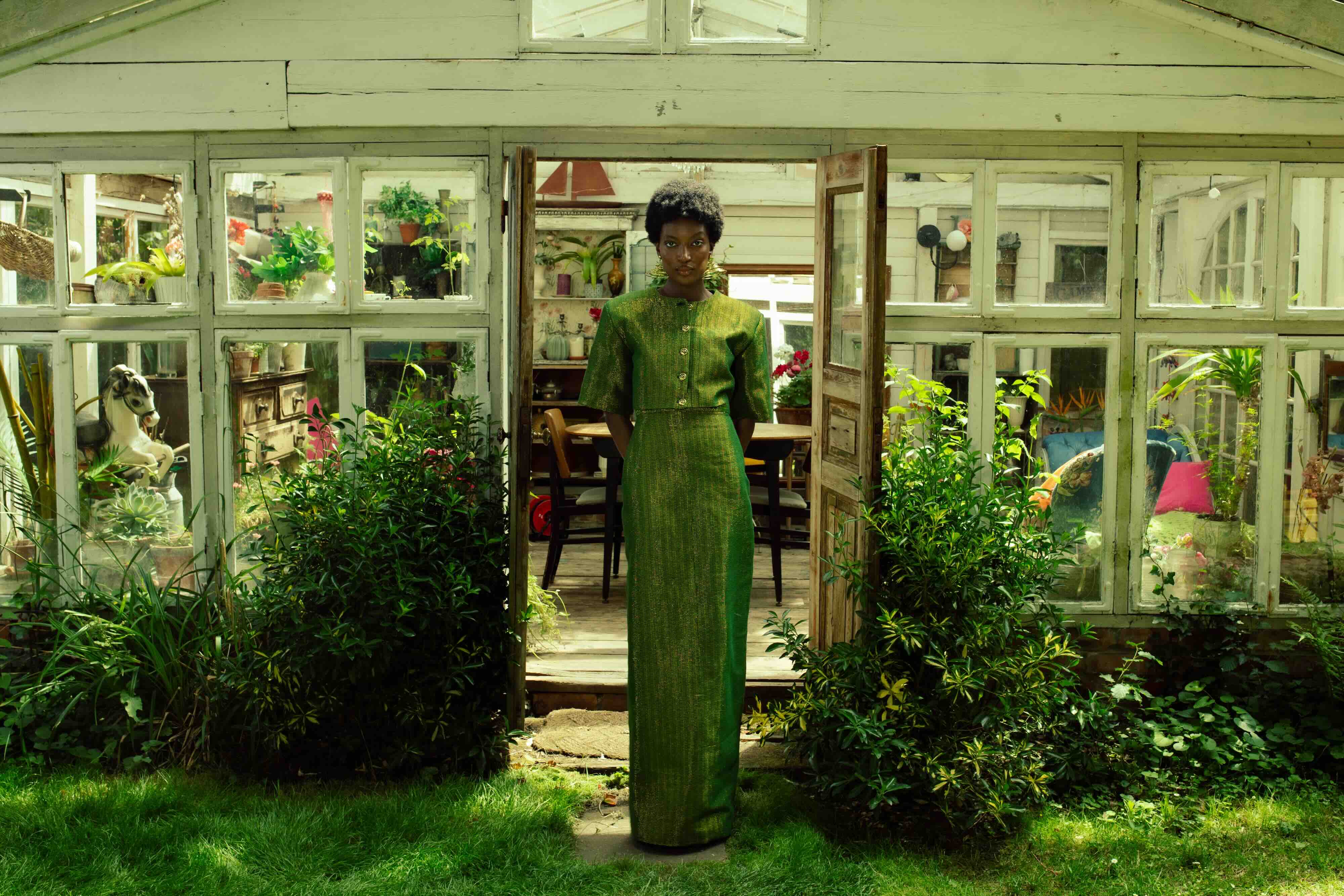
These designers are not merely creating outfits; they are telling stories, stories of identity, history, culture, and community.
These designers are not merely creating outfits; they are telling stories, stories of identity, history, culture, and community.
Nigerian fashion brand, Kílẹ̀ńtàr, recently unveiled its latest collection to the public, and like the previous collections from the brand, the newest pieces are exquisite blends of traditional materials with modern styles, showing that Kílẹ̀ńtàr is still dedicated to showcasing West Africa’s rich culture and the craftsmanship of local artisans. The latest pieces, which are a delightful burst of colours, can fit into different occasions. From brunches to corporate events or date nights, the collection is filled with diverse pieces. Founded in 2019 by Michelle Adepoju, the fashion brand is a love letter from Adepoju to the local artisans she met while exploring West Africa. Since its emergence, Kílẹ̀ńtàr has stood out as one of the brands from Africa at the forefront of fashion innovation.
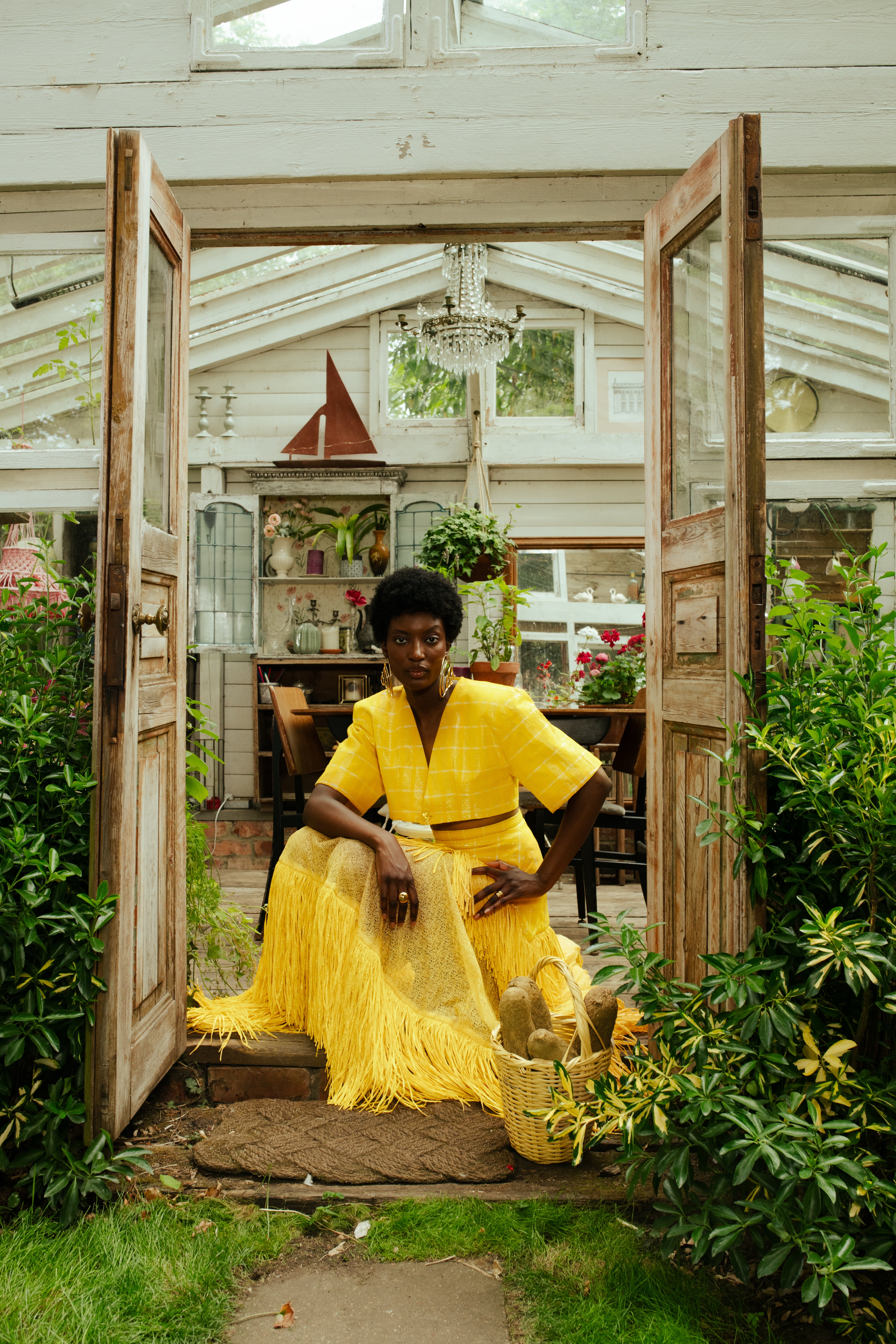
This commitment to merging culture with modern fashion is not new to Nigeria’s fashion scene. As far back as the 1960s, Nigeria’s first modern fashion designer, Mrs. Victoria Folashade Thomas-Fahm, created a fashion line representing Commonwealth nations for Nigeria’s independence ceremony in London. Despite the prominence of the occasion and notable personalities in attendance, Mrs. Thomas-Fahm’s outfits — blending modern looks with Aso-oke and gele to showcase her Nigerian heritage — stole the show. Her bold decision to merge traditional elements with contemporary designs revolutionized the Nigerian fashion industry and laid the foundation for designers like Adepoju to freely pursue innovation today.
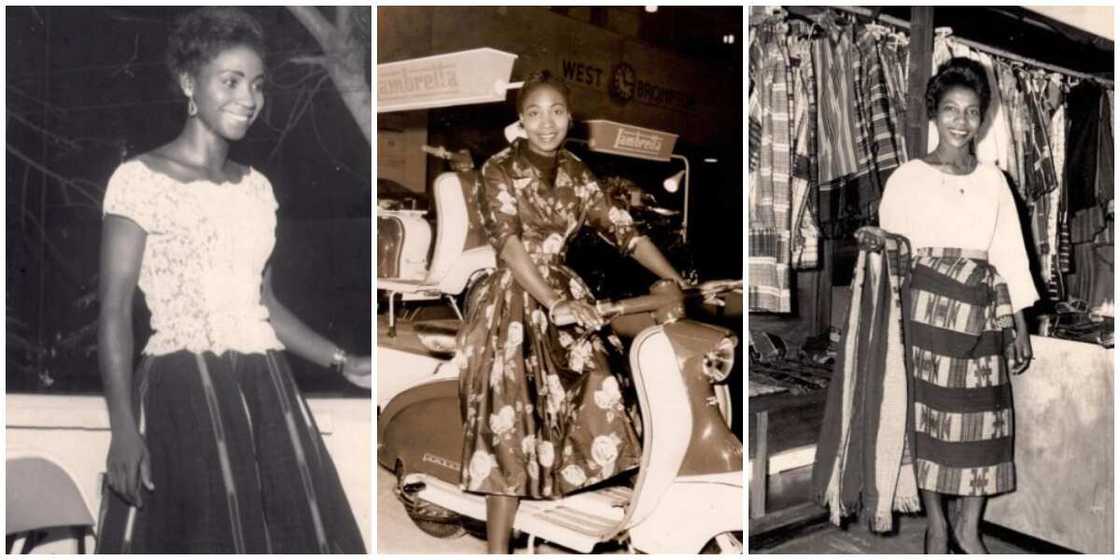
Decades after the independence fashion show, Nigerian designers have continued to blend traditional elements with modern twists. From the Lagos Fashion Week to Paris Fashion Week, pieces from designers such as Adepoju, Oroma Cookey-Gam & Osione Itegboje, Deola Sagoe, Florentina Agu, Tsemaye Binitie, and Emmanuel Okoro have stood out for their creative fusion of tradition and modernity. Their vibrant use of colour and unconventional materials has captured attention on global fashion stages, thereby continuing the heritage of Mrs. Thomas-Fahm. The Nigerian fashion industry has flourished thanks to the tenacity and creativity of these fashion designers, who have impacted the industry and contributed significantly to the creative economy.
While the commercial value of innovative pieces may be one of the reasons why Nigerian designers have created outfits that blend traditional and modern elements, many have expressed their desire to express their cultural heritage through their work. It is not merely an avenue to simply achieving financial freedom; it is also a vision to bring traditional materials to global stages, enabling Nigerian-based fashion enthusiasts and Nigerians in the diaspora to showcase their culture through their outfits. Additionally, designers aim to reimagine some of the outfits they remember their mothers, aunties, and other relatives wearing.
In an interview with OkayAfrica, Nigerian designer Florentine Agu expressed her desire to create outfits she saw her aunties wearing, describing them as “undeniably Nigerian”. Guided by this vision, her fashion brand, Hertunba, has created pieces that merge Akwete — an indigenous Nigerian fabric native to the Igbo people of southeastern Nigeria —with a modern twist.
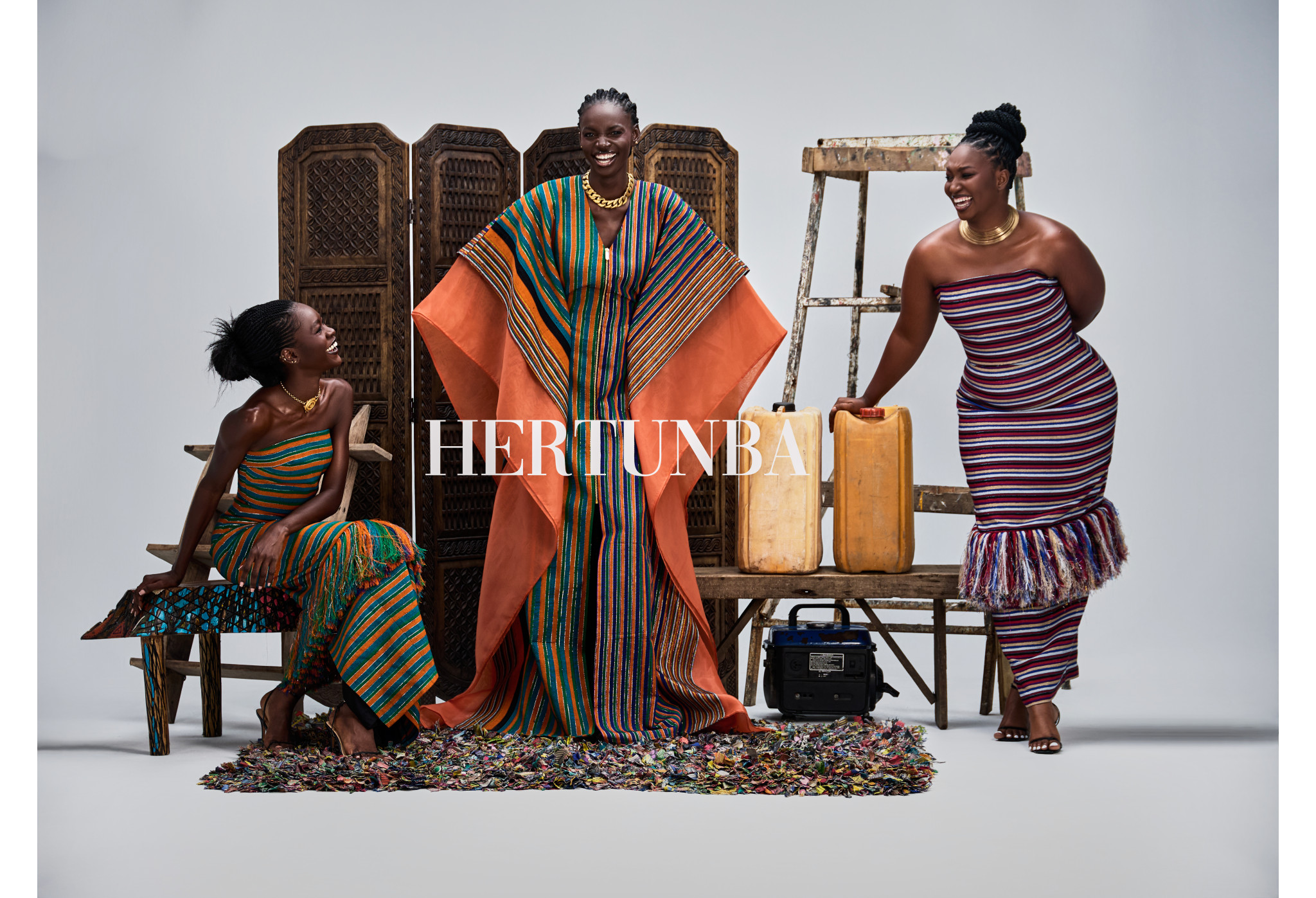
These Akwete fabrics, inherited by Agu, have been transformed into outfits suitable for dinner parties, official outings, leisure activities, beach parties, and other events due to their modern and functional design. Whether a piece from Hertunba is worn on the streets of Lagos, New York, or Paris, its vibrant colours, the unique styles, and the intricate cuts are sure to grab people's attention. Besides incorporating Akwete in her fashion pieces, Agu blends other cultures into her pieces. For instance, the Igodo Tank dress — named after Igodomigodo, the original name of the Benin kingdom — is inspired by the female form and the dance of Edo masquerades. The materials used in the dress mimic the fringes on the Masquerades' attire. Agu’s creations not only showcase Akwete but also evoke memories of cultural events, telling stories rooted in various Nigerian traditions
Her documentary, The Women Before Us, was another way to merge modern and traditional elements. In the documentary, which was shot in Edo State, the innovative fashion designer infused Edo beads in the fashion pieces worn by young models and middle-aged women, demonstrating that her pieces are meant for people of all ages and social classes. The documentary paid homage to Edo culture. One standout feature of the documentary was the segment showcasing Edo women making traditional materials that Agu infuses in her pieces. Her showcase at last year’s Lagos Fashion Week was a masterclass in inclusivity. Agu’s collection featured plus-sized models, curvy and middle-aged women, all confidently wearing signature pieces that infused Akwete, traditional beads, and textiles. Through Hertunba, Agu is elevating various Nigerian cultures, and through storytelling, she is bringing old cultural narratives to the global stage.
Another Nigerian designer who is combining traditional elements is Tsemaye Binitie. The Nigerian-British designer’s brand has added a modern twist to Aso-oke, a traditional material popular in western Nigeria, primarily worn during celebrations or Yoruba festivals. Binitie has transformed Aso-oke into contemporary outfits, such as gowns and skirts, making the fabric versatile for various modern settings. Historically, Aso-oke was often worn by prominent families, making it one of the most prestigious outfits worn years ago. Today, its exclusivity remains one of its major selling points, allowing women who wear pieces by Binitie to feel regal and significant. Through his various collections, it is evident that the vision behind Binitie’s decision to modernise aso-oke is to preserve the traditional material. He is clearly passionate about repurposing it in order to preserve one of Nigeria’s cultural heritages. Agu and Binitie are keeping the Nigerian culture alive. Whether it's through Akwete or Aso-oke, they are revitalising and displaying their cultural heritage.
Still dedicated to showcasing Nigeria’s rich cultural heritage, Nigerian designer Emmanuel Okoro, the founder of Emmy Kasbit, has created a fashion brand that fuses Akwete with modern designs. Okoro continues to honor his culture through his innovative creations. For instance, his signature wrap skirt was inspired by the traditional wrappers of warriors. By adding a button to the outfit, he perfectly blends tradition with modernity as old warriors tied their wrappers. For ten years, Okoro has created stunning pieces using handmade Akwete material for both men and women. His work reflects a deep cultural inspiration. Unlike the original Akwete material, which is stiff, the material used for Okoro’s designs has been transformed into silk prints, making the pieces more visually appealing. Through Emmy Kasbit’s collections, Okoro is refining culture without subtracting its authenticity. His Akwete suit challenges the notion that traditional attire is restricted to informal settings. Now, modern men and women can proudly wear these unique, culturally infused fashion pieces in any setting.
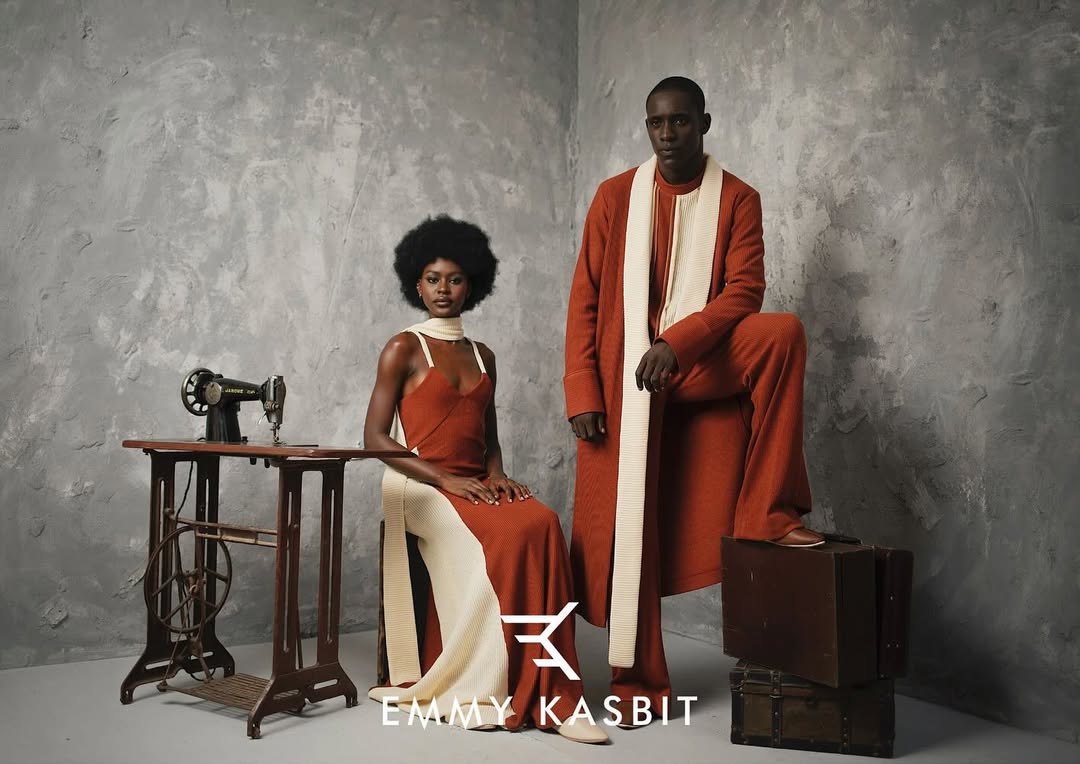
Beyond infusing Akwete with modern styles, Okoro is also impacting the lives of the artisans who produce the fabric. By providing access to quality healthcare, encouraging education, and improving the work environments, he is consciously ensuring the Akwete culture is passed to another generation. This initiative not only protects the culture but also empowers the community. With this initiative and his thriving fashion line, the future of culturally inspired fashion brands looks promising.
Traditional materials like the aso-oke and Akwete might be the most popular choices for promoting African fashion, but locally made cotton, Funtua cotton, is gradually infiltrating the Nigerian fashion industry. This cotton, produced in Katsina state, is supplied by the only surviving cotton company in Nigeria. Spearheading the blend of Funtua cotton with modern styles is the fashion brand, This is Us, owned by Oroma Cookey-Gam & Osione Itegboje. The couple first discovered the cotton in Osogbo and has since developed various creative ways to infuse the rare material in their designs. Some of their pieces include kaftans, boubous, streetwear, scarves, bandanas, flower vases, suits, dinner dresses, and more.
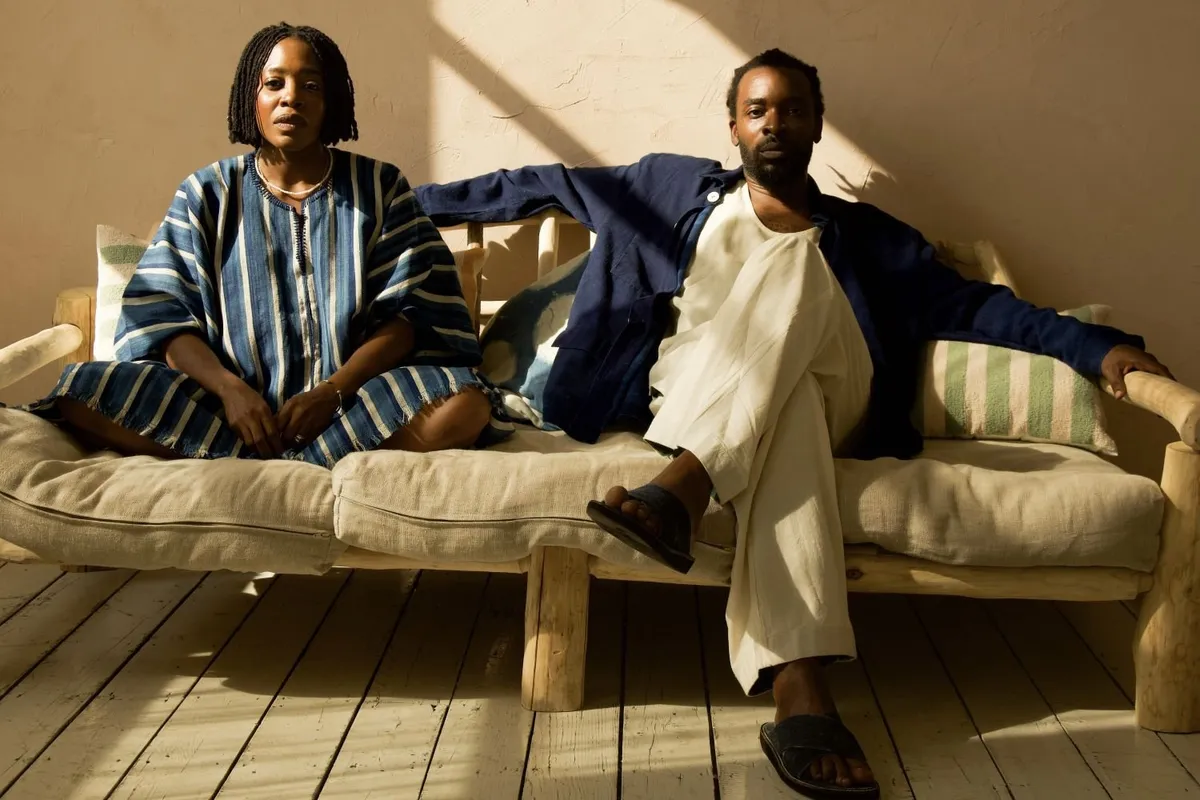
An admirable feature of the fashion brand is its peculiarity. All the pieces are dyed indigo and have the “This is Us” tag—there aren’t many fashion brands operating in this way. The indigo dye represents another traditional element, as the clothing brand collaborates with dyeing experts from the Kofar-Mata dye pits in Kano state, who experiment with multiple dye techniques that are later incorporated into the pieces. Both materials used in this fashion brand are deeply rooted in Nigerian culture, reflecting the ancient dyeing pits and cotton sourced from northern Nigeria. This demonstrates that the fusion of traditional materials with modern styles is not exclusive to the western region of Nigeria. Nigerian fashion brands can also make culturally inspired outfits using traditional materials from other parts of Nigeria. The combination of Funtua cotton and local tie-dye methods, with a modern twist, is a rare innovation in the Nigerian fashion industry. As the brand showcases its work on international stages, the cultural influence of northern Nigeria on the fashion industry continues to grow.
In the Nigerian fashion industry, traditional-infused pieces aren’t limited to dresses, suits, and streetwear; wedding dresses are also receiving their traditional twists. With their unique traditional wedding dresses, Deola Sagoe, one of Nigeria’s top bridal fashion lines, has redefined bridal clothing with their Komole line. The dresses are always colourful, featuring creative designs that make each dress different from the others. In recent times, being a Deola bride has become the dream of every Nigerian woman because the dresses fit so perfectly, regardless of size or skin color. Each dress, made from aso-oke, is exclusively designed to make the bride’s day even more memorable. The men aren’t left out, as the fashion brand also caters to the male audience with their tailored agbadas, which are sown with the same unique design pattern as their dresses.
The dresses from House of Deola are a reminder that wedding dresses can be extraordinarily unique and beautiful, while incorporating some modern styles like the corset. One of their standout pieces is the Superstructure maxi-trumpet silhouette dress. Made from Aso-oke, the dress is a perfectly structured outfit with rose-detailed sleeves, a low-cut back, and a laser-cut tail. With the Aso-oke bridal dresses and campaigns like the Komole: Nigeria’s Regal Gift To The World, the Nigerian fashion industry is constantly portraying its prowess in taking quirky fashion to the world. Our fashion industry is an endless bowl of creativity that keeps delivering designs that challenge some established norms in the fashion industry, such as the need to present trendy Western styles on global fashion stages.
One cannot talk about the innovation of Nigerian fashion without mentioning Adire or tie and dye. Years ago, the citizens of Egbaland tied Adire wrappers, while the men wore Adire agbadas. Now, the locally made fabric has been transformed into fashionable gowns, swimsuits, blazers, and kimonos, showcased at fashion shows like the US Embassy in London, the Africa Fashion London Show, the Brazil Fashion Show, and many others. Over the years, Adire pieces have been shown proudly in almost every fashion scene.
The vibrant colours and immaculate patterns, and designs make it outstanding, making it easy to blend effortlessly with any modern style while retaining its original cultural touch. When blended with modern styles, the beauty and richness of Adire shine through, indicating that fusing traditional materials with modern styles elevates both. Whenever Adire is showcased on the runway, its beauty not only shines, but the cultural story also takes centre stage. In the story of the Egba women who protested the gruesome tax imposed on them, Adire was one of the clothing items worn during the protests, serving as a symbol of unity. As Adire continues to rise as one of the traditional materials that is elevating the Nigerian fashion industry, its cultural history of resilience and the heritage of the Egba people are also deeply rooted in every piece.
Overall, the Nigerian fashion industry is one that currently thrives on its culturally rooted innovative pieces. From the groundbreaking designs of Mrs. Thomas-Fahm in 1960 to the contemporary works of designers like Florentine Agu, Michelle Adepoju, Tsemaye Binitie, Emmanuel Okoro, Oroma Cookey-Gam, Osione Itegboje, and Deola Sagoe, the fashion industry has continued to create pieces that sync cultural materials with modern styles, that has in turn brings Nigeria’s culture to global stages and also makes our designers outstanding.
These designers are not merely creating outfits; they are telling stories—stories of identity, history, culture, and community. By transforming traditional materials such as Aso-oke, Akwete, Adire, and Funtua cotton into globally acclaimed pieces, they bridge the gap between past and present, tradition and innovation, local and global. Their work uplifts cultural artisans, preserves indigenous practices, and ensures that Nigeria's heritage continues to thrive on global stages.
Comments